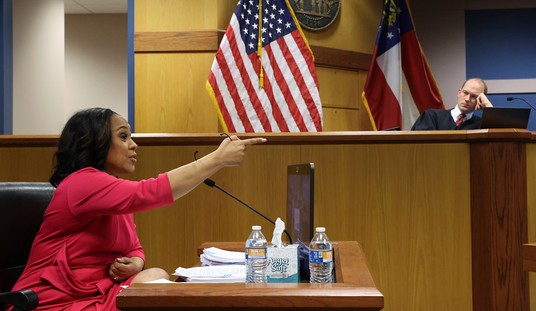Lee Smith at Slate repeats a question that has been posed across the Internet as Barack Obama prepares to speak in Egypt. He will be sending signals on many levels, of which the words he utters will be just one. But will he be sending the right ones? Smith writes about the danger of addressing Muslims as Muslims:
Ayatollah Ruhollah Khomeini introduced many important ideas into contemporary Islamic practice and thought—especially the highly contested notion of vilayet e-faqih, that the religious guide should also hold supreme political power—but perhaps Khomeini’s major contribution was not an innovation but a simplification. To the question What does it mean to be a Muslim? Khomeini gave a one-word answer: resistance.
There are 1.2 billion Muslims in the world, stretching from India to Indonesia and from the United Arab Emirates to the United States, which makes Islam perhaps the world’s most heterodox faith. Some pray like this, others like that; some are white, some black; some are Arabs, some are Chinese; a minority think Ali should have succeeded the prophet of Islam directly, the majority think it turned out right with Abu Bakr following Mohammed. In addition to Sunnis and Shiites, there are Sufis and Salafis, Wahabbis and Zaidis, as well as dozens of other minority sects. Islam, despite the simplicity of its profession of faith—there is no God but God, and Mohammed is the messenger of God—is an esoteric creed with more than a millennium of jurisprudence and philosophy behind it. Islam is complicated. But Khomeini reduced this all to one big idea: Being a Muslim means opposition to the West, especially the United States. This is Khomeini’s Muslim world—not a caliphate or a wonderful mosaic of various practices and beliefs, but a unity forged on the anvil of resistance. This concept is what bridges, for instance, Egypt’s Muslim Brotherhood, a Sunni organization, and Hezbollah, Lebanon’s Shiite militia.
This implies, given the idea that Islam means “resistance” in the street political context, that Obama, by giving his keynote from beside the authoritarians in Cairo risks empowering their opponents not with the idea of democracy, but with the notion of Khomeini’s “resistance”. He’ll be providing those who resent the authoritarians with a sense of identity and legitimacy — but of the wrong kind. Lee writes, “President Obama has unwittingly walked right into the middle of Tehran’s own public diplomacy campaign, one of the most effective PR efforts ever staged.”
In seeking to speak to the Muslim masses over the heads of their rulers, Obama, as columnist David Goldman (who usually writes under the name Spengler) explains, is undermining an important U.S. ally on his home turf.
“By addressing the ‘Islamic world’ from Cairo,” writes Goldman, “Obama lends credibility to the Muslim Brotherhood, Hamas, and other advocates of political Islam who demand that Muslims be addressed globally and on religious terms.” In other words, the American president is playing into the hands of those who seek to bring down the U.S.-backed order in the Middle East. … Washington’s Arab allies are telling Obama that Iran is the problem, but he can’t hear them while he’s doing Tehran’s public diplomacy.
Barack Obama may yet come to resemble Jimmy Carter in more than one way. We forget that Carter never thought his actions would finish up the way they did. Obama may intend to unjam the Middle East by doing something ‘innovative’ and ‘untried’ but wind up breaking the billiard rack in such a way that not Washington, but Teheran, gets to clean up the game.
Don’t create a bad set of initial conditions. Your opponents may run with it.
[youtube 6r79q96WQIQ]










Join the conversation as a VIP Member